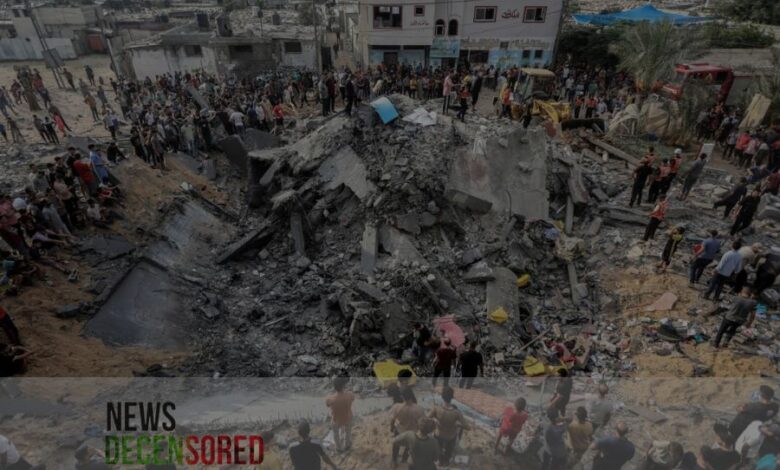A Tribute to all the Medics risking their lives in the Impossible situation of Gaza to Save Lives

In November, a 21-year-old medic, Izedine Lulu, was stationed at Gaza’s al-Shifa Hospital when he discovered from a colleague that an Israeli air raid had demolished his house and killed his brothers, sisters and father.
The only clue that was left behind told that Al-Shifa was surrounded by Israeli tanks and snipers, and thus, Lulu was unable to collect their bodies. Instead, he carried on this gruesome job, treating patients even while the fighting was going on around him. ”Eight patients in the ICU died before my very eyes,” Lulu said to Al Jazeera, which reveals the new challenge the hospital faced for the first time to bury multiple people in the hospital.
Lulu is one of many medics, both local and international, trapped in the conflict that ensued when Israel seized the Rafah crossing between Gaza and Egypt this month. This crossing was the only way out for those caught up in the besieged area. However, the situation is critical, and Lulu and his colleagues working at al-Ahli Hospital never lose focus on their core assignment. “We need to stay in the hospitals,” he said, insisting on the importance of the medics in this war.
Foreign volunteers had come to Gaza to help the civilians during what experts of the United Nations have called genocide. Foreign nationals, especially those from the West, have panicked, and many have been evacuated through their embassies, but the new volunteers cannot immigrate. These foreign medics have deserted the few remaining operating hospitals in Gaza, which are already experiencing a catastrophic lack of medicines and equipment.
More than 1000 people were killed and 2500 others abducted in the resultant Palestinian militia operation in southern Israel on 7 October, while more than 100,000 civilians were killed or injured by Israeli forces’ severe counterattack in the Gaza Strip, WHO and Gaza Health Ministry report. This conflict has also destroyed 23 of the 36 health facilities and the loss of 493 healthcare givers. Currently, the WHO has termed this a systematic removal or a systematic decentralisation of health care in Gaza.
Mosab Nasser, a man who left Gaza 30 years ago to study medicine to become a doctor, was received in April as the chief executive officer of the Fajr Scientific managerial business through which the non-profit organisation feeds volunteer surgeons to conflict-stricken areas. Nasser and his team, 17 surgeons total, are at the European Gaza Hospital in Khan Younis, working with the most severe war wounds. More of his staff moved out after Israel shut down the Rafah crossing; he was, however, left with two people to depart through Karem Abu Salam in Gaza.
The hospital compounds have been filled with many people, as most of them, including innocent civilians, are severely injured and require the attention of medical practitioners. Still, due to the lack of enough workers, the hospitals cannot handle the increasing number of people.
A pledge by Egyptian eye surgeon Mohammed Tawfeeq is still being held in the European Hospital. He has treated many children who lost their sight because of shells and bullets that affected their heads. The hospital becomes congested because of its constant electricity supply and more medicine. Tawfeeq treats roughly 80 patients daily and worries about the hospital’s survival after evacuating.
Volunteering in northern Gaza is a medical student, Deema Estez, 21 years old. She has survived through such tenses as having to amputate a child’s limbs and having artillery shelling close to the hospital. Nonetheless, Estez does not abandon the plan and aims to stay there and support her people. “If Israel kills any more doctors, he or she will be deepening the suffering of a health sector that has already been severely affected,” she said.
In this paper, the authors revealed that the ongoing conflict negatively impacted the health sector in Gaza and Lulu and Estez still treat patients in an impoverished environment. The international community is observing the deepening humanitarian crisis, yearning for a resolution to the ongoing cycle of violence.




